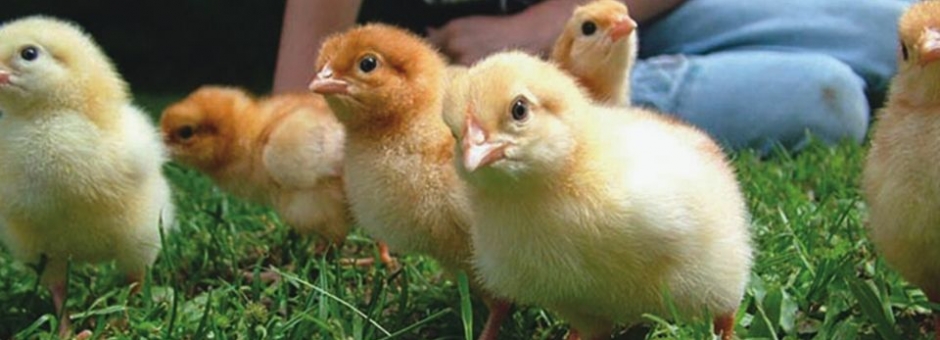The Issue
Born to be a teaching resource?
Should sentient animals be born into the world to be a teaching resource for a few primary school Science lessons? Of course not. But every year in Queensland and around Australia this is a common occurrence. Many thousands of baby chickens are born not just in schools but in pre-schools and kindergartens as well. Fertilised eggs are delivered to classrooms and kept in incubators until they hatch. Baby chickens are then kept and observed for about a week. The hatching event and the week of care is supposed to teach young children about the wonders of life. The week-old chicks are then either returned to the supplier where their fate, particularly that of roosters, is uncertain, or else they are taken by families who may or may not have experience in properly caring for chickens. When city-living families who take in a chick discover they have been given a rooster, they must dispose of him because of council noise regulations. It is extremely hard to re-home roosters.
Important life lessons lost
An unintended lesson delivered by chicken hatching projects is that chicks don’t need their mothers and have no need of a family life. Children are really learning that technology can replace Mother Nature - when there is money to be made by it. This is a poor lesson for young children.
Chicken hatching projects also do not teach young and impressionable minds important life lessons about compassion, responsibility and justice. Importantly, chicken hatching projects do not teach children that bringing a life into the world means having a permanent responsibility for the life created.
Unwanted animals
Teachers who undertake these projects are potentially contributing to the societal problem of unwanted animals and animal suffering, just so their students can experience a temporary ‘wow factor’ when they observe the cute chicks. There is a cruel irony at work here and young students who invariably have a genuine love of animals would, of course, be distressed if they knew the fate that could befall many of the chicks.
Alternatives to chicken hatching
Chicken hatching projects can be replaced with many options such as excursions, DVDs, egg hatching model kits, books, and even plant studies. With so many ways to show young children the life cycles of animals and plants there is no need to bring new and unwanted lives into the world just for a classroom project.
What are we doing?
- We are in regular communication with the Department of Education, Training and Employment and its Queensland Schools Animal Ethics Committee (QSAEC). We believe the QSAEC should ban chicken hatching projects in schools. The Code of Practice under which they operate (The Australian Code for the care and use of animals for scientific purposes 2013) states that if alternatives to animal use are available they must be used. Alternatives to the use of chicken hatching projects ARE available for all Australian Curriculum content descriptions in Biological Science but the QSAEC to date has shown reluctance to ban the activity. We will continue to pressure the QSAEC to carry out its responsibilities and enforce the Code properly.
- We educate schools about this issue through email campaigns.
- We write to child care centres and schools about our concerns when we become aware that they have undertaken chicken hatching projects.
What You Can Do?
- Let your friends, family and colleagues know why chicken hatching is not an ethical activity.
- Let people know of the alternatives which achieve the same learning outcomes.
- Write to local papers if ever they publicise chicken hatching in a positive way and tell them of your concerns.
- Let us know if you become aware of a school, child care centre, kindy or other organisation which has recently undertaken chicken hatching or intends to do so in the future. We will send them our brochure which outlines our concerns.
Further Information
Resources for download:
- Chicken Hatching Alternatives (Powerpoint presentation - 1.2 Mb) - for more detailed information about alternative resources that schools can use.
- Chicken Hatching Flyer (PDF - 218 kb)
Other useful web sites:
- Hatching a good idea (Edgar's Mission)
- The Story of the Hatching Box
- CDC - health risks from handling chicks

